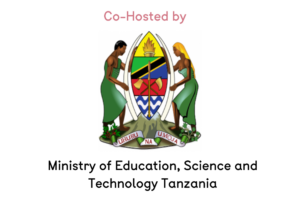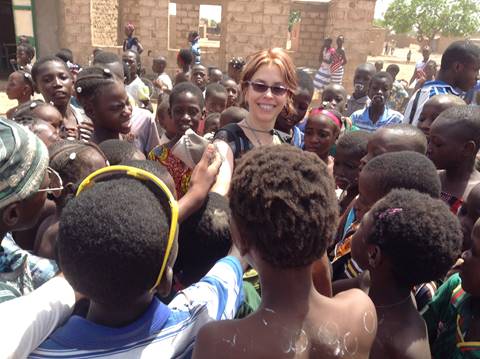AI is Africa’s friend not its enemy! Although I speak English, I’m not English, but Scottish, where the culture is open, talkative and based on humour. That doesn’t make me an expert on vastly different cultures, social norms and linguistic nuances in Africa, but I work in AI and that helps! Yes, colonial erasure, language marginalisation and economic inequality are real, but it would […]
Field Stories
D4D Hub: Bridging Global Digital Divides Through Collaboration
The Digital for Development (D4D) Hub is a strategic platform that strengthens digital cooperation between the European Union, its Member States (Team Europe), partner regions across Africa, Asia-Pacific, Latin America and the Caribbean, and the EU neighbouring countries. Rooted in the principles of the Global Gateway, the D4D Hub promotes a human-centric approach to digital transformation, ensuring that technology serves people first. The Global […]
🇹🇿 Discover Tanzania: From the Cradle of Humankind to a Future of Innovation
As we prepare to gather in Dar es Salaam for eLearning Africa, taking place from 7 – 9 May 2025, we invite you to explore more than a conference and to discover a country where ancient history, awe-inspiring nature, and forward-looking progress converge. Tanzania is not just a destination. It’s an experience. From the earliest human footprints preserved in Olduvai Gorge – one of […]
“Re-imagining Human Capital Development in Africa: Developing Skills for the Digital Workplace, Building AI Readiness for Africa and the Centrality of Data”
Introduction Reimagining human capital development in Africa means more than reform — it calls for a bold transformation of education, training and lifelong learning systems to power the continent’s sustainable growth and innovation. The 2025 Ministerial Round Table (MRT) brings together high-level policymakers, experts and stakeholders to focus on three interlinked drivers of this Transformation. The first session addresses practical learning and pedagogy for […]
Powering Mozambique’s Future: EDM’s Role in Enabling Digital Education
Electricidade de Moçambique (EDM) is Mozambique’s state-owned electricity utility, established in 1977. Tasked with the generation, transmission, distribution and commercialisation of electricity, EDM plays a critical role in driving the country’s development. Today, EDM’s bold vision goes beyond infrastructure. They are committed to bringing reliable energy access to every corner of Mozambique, laying the foundation for digital education, innovation and opportunity. Who Is the […]
THE MILL PARTNERS WITH DE-AFRICA TO LAUNCH FIRST PAN-AFRICAN ENTREPRENEURSHIP COURSE
With the aim of building entrepreneurship, the hands-on program will serve close to 400 participants across 28 African Countries Bloomington, IN – [September 4th, 2024] – In an exciting new partnership, The Mill, a leading startup accelerator based in Bloomington, Indiana, has partnered with Distance Education for Africa (De-Africa) to launch the first-ever Pan-African entrepreneurship course. This hands-on program aims to build entrepreneurship skills […]
Interview with Moodle Founder & Head of Research Martin Dougiamas
1. It has been more than five years since you shared with eLearning Africa that you were “worried by the Silicon Valley approach” in Africa, and “the disturbing trend for large corporations to seize power and control, controlling the conversation with a cultural agenda.” You noted then that African countries should be “doing the research on what works for them.” What have you learned […]
e-Assessment in Africa
In the rapidly evolving assessment landscape, e-assessment is a pivotal tool for transforming learning experiences on the African continent. The use of technology-enabled assessment to streamline and improve the assessment process can significantly enhance learning outcomes. The e-Assessment Association (eAA) is a not-for-profit focused on all things relating to the use of technology in assessment and is free to join. The rationale for using […]
A moment in time. Uganda Kayanga District
by Pauline McLeod “I want to read, I want to read.” Three P1 and 2 children were knocking on the door at 9.00am in the morning. Not yet fully dressed these three children had come from the nearby village and were outside Maligita Primary School Office. They wanted access to the books in the library and to read on the tablets. Maligita Primary School […]
Changing cultural norms through education: Voices from Ghanaian female principals
by Corinne Brion, PhD, University of Dayton, USA
With 17 goals and 169 targets, the Sustainable Development Goals (SDGs) aim to eradicate poverty in all its forms by 2030. Goal #5 reads: Achieve gender equality and empower all women and girls. The proposed study explores Goal 5 target 5.5 which strives to: Ensure women’s full and effective participation […]



























